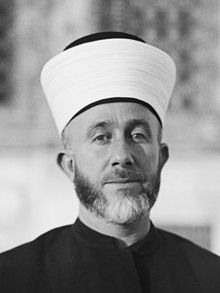Eighty-one Years Ago: It began with a boycott of Jews in Berlin
April 1933: Nazi storm troopers outside a Berlin store posting signs reading, “Do not buy from Jews!”
It always starts with a boycott. That is how tyrants begin the process of cleansing those deemed unfit or enemies of the state. Eighty one years ago we saw the same thing that is happening today, not in Nazi, Germany, but rather on the campuses of America’s elite universities and on the streets of New York City.
Rabbi Aryeh Spero in The Jewish Press reports, “It is incomprehensible. This year, the sponsors of New York’s annual Israel Day Parade are allowing organizations to march who actively promote a boycott of Israeli businesses and companies owned by Jews in Judea-Samaria.”
“The UJA-Federation, responsible for the annual parade, has given the Green Light to groups organizing boycotts against products of Jewish owners in Judea and Samaria. These groups work every day to isolate Israel and make her a global pariah, announcing to the world the names of specific Jewish-owned companies operating in Judea-Samaria they want punished. Yet, these ‘Jewish’ groups are being invited to infiltrate the Parade, either because of agreement with their tactics or as a way of affirming what the UJA-Federation calls an ‘open tent’,” notes Rabbil Spero.
The current Boycott, Divest and Sanction (BDS) movement touts itself as promoting “freedom, justice, equality.” The global BDS campaign against Israel is coordinated by the Palestinian BDS National Committee (BNC), established in 2007.
But the 1933 boycott of Jews in Berlin is inextricably linked to the current BDS movement against Israel. That link is Amin al-Husseini, the Grand Mufti of Jerusalem and co-founder of the Muslim Brotherhood.
Back in the summer of 1940 and again in February 1941, al-Husseini submitted to the Nazi German Government a draft declaration of German-Arab cooperation, containing a clause:
Germany and Italy recognize the right of the Arab countries to solve the question of the Jewish elements, which exist in Palestine and in the other Arab countries, as required by the national and ethnic (völkisch) interests of the Arabs, and as the Jewish question was solved in Germany and Italy.
On 20 November, al-Husseini met the German Foreign Minister Joachim von Ribbentrop[149] and was officially received by Adolf Hitler on 28 November.[150] He asked Adolf Hitler for a public declaration that ‘recognized and sympathized with the Arab struggles for independence and liberation, and that would support the elimination of a national Jewish homeland’.[151] Hitler refused to make such a public announcement, saying that it would strengthen the Gaullists against the Vichy France, but asked al-Husseini to ‘to lock …deep in his heart’ the following points, which Christopher Browning summarizes as follows, that:
‘Germany has resolved, step by step, to ask one European nation after the other to solve its Jewish problem, and at the proper time, direct a similar appeal to non-European nations as well’. When Germany had defeated Russia and broken through the Caucasus into the Middle East, it would have no further imperial goals of its own and would support Arab liberation… But Hitler did have one goal. “Germany’s objective would then be solely the destruction of the Jewish element residing in the Arab sphere under the protection of British power”. (Das deutsche Ziel würde dann lediglich die Vernichtung des im arabischen Raum unter der Protektion der britischen Macht lebenden Judentums sein). In short, Jews were not simply to be driven out of the German sphere but would be hunted down and destroyed even beyond it.’

While in Germany, al-Husseini was taken on a tour of Auschwitz by Himmler and expressed support for the mass murder of European Jews. At Auschwitz, al-Husseini reportedly admonished the guards operating the gas chambers to work more diligently. In 1944, a German-Arab commando unit under al-Husseini’s command parachuted into Palestine and poisoned Tel Aviv’s wells.
Al-Husseini also helped to organize thousands of Muslims in the Balkans into military units known as Handselar divisions which carried out atrocities against Yugoslav Jews, Serbs and Gypsies.
A separate record of the meeting was made by Fritz Grobba, who until recently had been the German ambassador to Iraq. His version of the crucial words reads “when the hour of Arab liberation comes, Germany has no interest there other than the destruction of the power protecting the Jews”.
In the lead-up to the 1948 Palestine war, Husseini opposed both the 1947 UN Partition Plan and King Abdullah’s designs to annex the Arab part of British Mandatory Palestine to Jordan, and, failing to gain command of the ‘Arab rescue army’ (jaysh al-inqadh al-‘arabi) formed under the aegis of the Arab League, formed his own militia, al-jihad al-muqaddas. In September 1948, he participated in establishment of All-Palestine Government. Seated in Egyptian-ruled Gaza, this government won a limited recognition of Arab states, but was eventually dissolved by Gamal Nasser in 1959.
After the war and subsequent Palestinian exodus, his claims to leadership, wholly discredited, left him eventually sidelined by the Palestine Liberation Organization, and he lost most of his residual political influence. But his spirit lives on in the current BDS movement.



